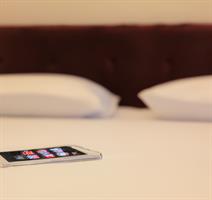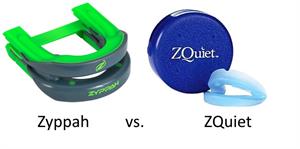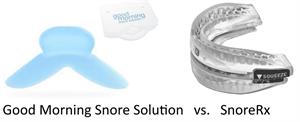Table of Contents
Contents:
- Introduction
- Types of Sleep Trackers
- Key Features of Sleep Trackers
- Benefits of Using Sleep Trackers
- Limitations of Sleep Trackers
- Sleep Tracker Products
- Conclusion
- FAQs: Exploring Sleep Trackers: Accuracy and Recommendations
Introduction to Sleep Trackers
In today's fast-paced world, getting a good night's sleep is more important than ever.
Quality sleep can boost your immune system, improve your memory, and increase your overall productivity.
However, many people struggle with sleep issues, making it difficult to get the restful sleep they need. That's where sleep trackers come in.
Sleep trackers are devices or applications designed to monitor and record your sleep patterns. They can provide valuable insights into your sleep duration, sleep quality, and the different sleep stages you experience throughout the night. By analyzing this data, sleep trackers can help you understand your sleeping habits and make changes to improve your sleep health.
Types of Sleep Trackers
There are several types of sleep trackers available, each with its own set of features and benefits. Here's an overview of the main types of sleep trackers:
Wearable Trackers
Wearable trackers, such as smartwatches and fitness bands, are among the most popular types of sleep trackers.
These devices are worn on your wrist and use sensors to monitor your movement and heart rate. By analyzing this data, wearable trackers can estimate when you're awake, in light sleep, deep sleep, or REM (rapid eye movement) sleep.
Some additional wearable sleep trackers include rings and fingertip devices worn at night.
Many wearable trackers also come with additional features, like tracking your physical activity and heart rate variability (HRV), providing silent vibration alarms to wake you up gently, and even offering guided breathing exercises to help you relax before bedtime.
Bedside Devices
Bedside devices are sleep trackers that sit on your nightstand or are placed in your bedroom. They use various sensors to monitor your movement, ambient noise, and light levels. Some advanced models also monitor your breathing rate and heart rate using radio waves. Bedside devices can be a good option if you find wearable trackers uncomfortable to wear during sleep.
Under-Mattress Pads
Under-mattress pads are thin sensors that you place under your mattress. These trackers detect your movement, body heat, and heart rate through the mattress to gather data about your sleep. Under-mattress pads can provide detailed sleep analysis without the need to wear anything on your body. However, they might not be as precise as wearable trackers in detecting certain sleep stages.
Smartphone Apps
Smartphone apps are a convenient and low-cost option for sleep tracking.
These apps use your phone's built-in accelerometer to measure movement during sleep. They may also use the microphone to detect snoring or other noises that might be disturbing your sleep. However, it's worth noting that the accuracy of smartphone apps can be variable and generally less reliable compared to dedicated sleep tracking devices.
Key Features of Sleep Trackers
Different sleep trackers come with a variety of features. Let's look at some of the key features you might find:
Sleep Duration
Most sleep trackers measure the total amount of time you sleep each night. This is typically broken down into periods of light sleep, deep sleep, and REM sleep.
Sleep Quality
Many sleep trackers provide a sleep quality score, usually based on a combination of factors such as your total sleep time, the amount of time you spend in each sleep stage, and the number of times you wake up during the night.
Heart Rate Monitoring
Some sleep trackers monitor your heart rate throughout the night, which can provide additional insights into your sleep quality and health. An unusually high or low heart rate during sleep could be a sign of a health issue that might need medical attention.
Sleep Environment
Some sleep trackers can also monitor factors in your environment that can affect your sleep, such as light and noise levels, temperature, and air quality.
Snoring Detection
Snoring can be a sign of sleep disorders like sleep apnea. Some sleep trackers can detect snoring and even distinguish it from other ambient noises.
Benefits of Using Sleep Trackers
Using a sleep tracker can offer numerous benefits. Here are some of the main advantages:
Gain Insight into Your Sleep Patterns
Perhaps the most significant benefit of using a sleep tracker is the ability to gain detailed insights into your sleep patterns.
This can help you understand if you're getting enough restorative sleep each night and identify potential issues with your sleep.
Benefits of Combining a Sleep Tracker with a Snoring Mouthpiece
Using a sleep tracker in tandem with a snoring mouthpiece provides a holistic approach to enhancing sleep quality. Let's delve into the compelling reasons why this combination is beneficial:
- Objective Data Collection: Receive precise data on your sleep, highlighting the effectiveness of your snoring mouthpiece.
- Snoring Reduction Verification: Trackers with snoring detection can measure the mouthpiece's efficiency in snoring reduction.
- Sleep Cycle Analysis: Determine if the mouthpiece elevates the quality of your deep and REM sleep.
- Oxygen Saturation Monitoring: Monitor oxygen levels, especially if sleep apnea is a concern.
- Restlessness Tracking: Ensure the comfort and proper fit of your mouthpiece by monitoring movement.
- Sleep Habit Insights: Gain insights into factors potentially impacting your mouthpiece's effectiveness.
- Consistency and Accountability: Motivate consistent use of the mouthpiece with tangible sleep improvements.
- Feedback Loop: Adjust the mouthpiece fit or style based on sleep data for enhanced effectiveness.
- Early Detection of Sleep Disorders: Beyond snoring, detect other potential sleep disorders.
- Personalized Adjustments: Tailor your routine for optimal results using sleep insights.
In essence, while a snoring mouthpiece tackles sleep disruptions directly, a sleep tracker offers analytical insights to refine its efficacy. This comprehensive strategy promises a significant boost in sleep quality.
Inform Lifestyle Changes
By identifying trends in your sleep patterns, a sleep tracker can help you make lifestyle changes to improve your sleep. For example, if you notice that you sleep better on days when you exercise, you might decide to incorporate more physical activity into your routine.
Spotting Potential Health Issues
Sleep trackers can sometimes help spot potential health issues. For example, if your tracker shows that you're frequently waking up during the night or that your heart rate is elevated during sleep, this might be a sign of a sleep disorder or other health condition.
Limitations of Sleep Trackers
While sleep trackers can provide valuable insights into your sleep patterns, it's important to be aware of their limitations.
Accuracy
The accuracy of sleep trackers can vary widely. Some devices and apps are very good at tracking total sleep time and wake-up times, but may not be as accurate when it comes to differentiating between sleep stages.
Data Interpretation
Interpreting the data from your sleep tracker can be challenging.
While these devices can provide a wealth of information, understanding what this data means and how it applies to your sleep health can be complex. It's always best to consult a healthcare professional or a sleep specialist if you're concerned about your sleep patterns or your health.
Sleep Tracker Products
There are many sleep tracking products which you can buy online.
Here are some available right now which we've reviewed:
Conclusion
Sleep trackers can be a valuable tool for understanding and improving your sleep.
They offer a range of features and come in a variety of forms, making it easier than ever to find one that fits your needs and lifestyle. While they're not a substitute for professional medical advice, they can provide useful insights and help you make lifestyle changes to improve your sleep health. So whether you're a chronic insomniac or just looking to optimize your sleep, a sleep tracker might be just the tool you need.
FAQs: Exploring Sleep Trackers: Accuracy and Recommendations
Are any sleep trackers accurate?
The accuracy of sleep trackers can vary widely based on the technology and algorithms they use. While some sleep trackers are more accurate than others, it's important to note that no consumer sleep tracker can provide medical-grade accuracy comparable to professional sleep studies conducted in controlled environments. Many consumer sleep trackers use accelerometers to estimate sleep duration and stages, but factors like movement during sleep and device placement can influence their accuracy. Some newer models incorporate additional sensors to improve accuracy, but individual results may still vary.
Is there a sleep tracker that's actually free?
Yes, there are free sleep tracking apps available for smartphones and smartwatches. These apps typically utilize the built-in sensors of the device, such as accelerometers, to monitor sleep patterns. While they may offer basic sleep duration and movement data, their accuracy might be limited compared to dedicated sleep tracking devices. Examples of free sleep tracking apps include Sleep Cycle, Sleep Score, and Sleep as Android. Keep in mind that while these apps are cost-free, they might include optional premium features available for purchase.
What is the best scientific sleep tracker?
Selecting the "best" scientific sleep tracker depends on the specific metrics you're interested in and the level of scientific validation you seek. Some sleep trackers, like the Oura Ring and the WHOOP Strap, have gained attention for their emphasis on accuracy and personalized insights. These devices incorporate multiple sensors to monitor heart rate variability, body temperature, and movement, providing a more comprehensive view of sleep patterns. It's advisable to research and compare reviews, user experiences, and any studies backing the claims of scientific accuracy.
What is the best smartwatch for monitoring sleep?
Several smartwatches excel in monitoring sleep patterns and providing insights into sleep quality. The Fitbit Versa series, Apple Watch, and Samsung Galaxy Watch are popular choices known for their sleep tracking capabilities. These smartwatches employ a combination of sensors and machine learning algorithms to estimate sleep duration, stages, and disturbances. The choice between these options often comes down to personal preference, compatibility with your device ecosystem, and desired features beyond sleep tracking.
In conclusion, while sleep trackers can provide valuable insights into sleep patterns, their accuracy varies, and none can replace professional sleep studies. There are free sleep tracking apps available, and several devices are recognized for their scientific accuracy and sleep monitoring capabilities. When selecting a sleep tracker or smartwatch for sleep monitoring, consider your preferences, budget, and desired features to make an informed choice that aligns with your sleep tracking goals.



